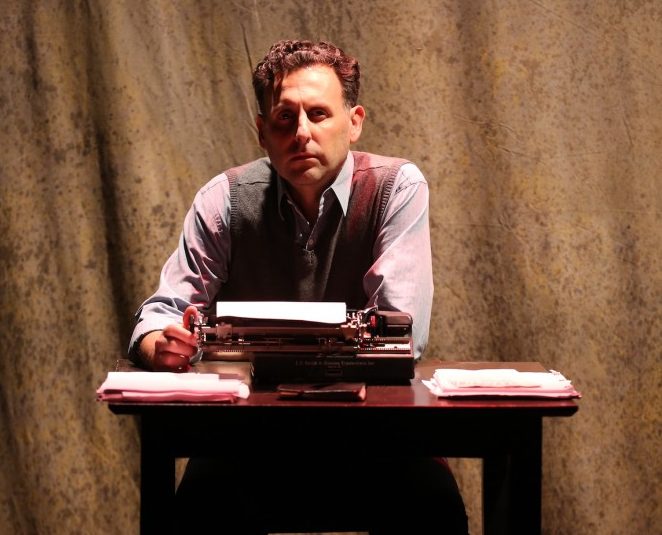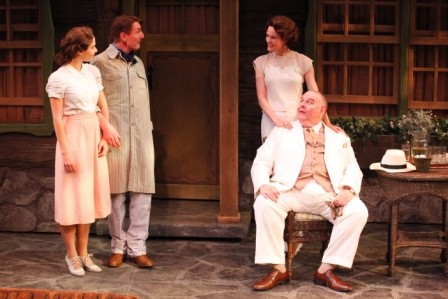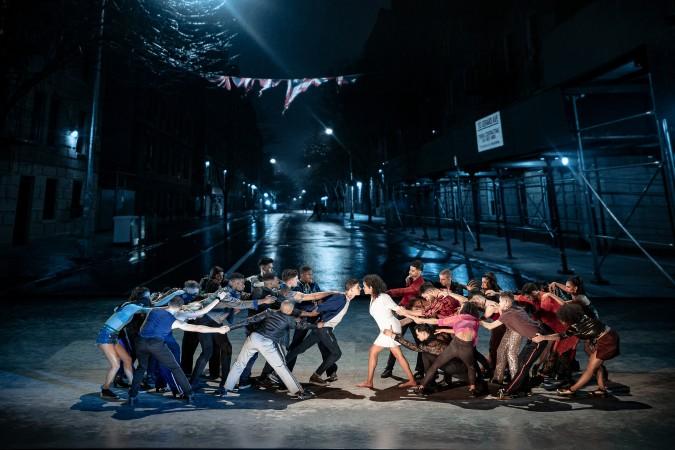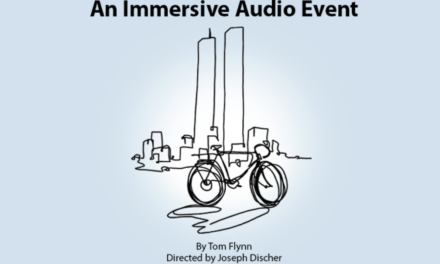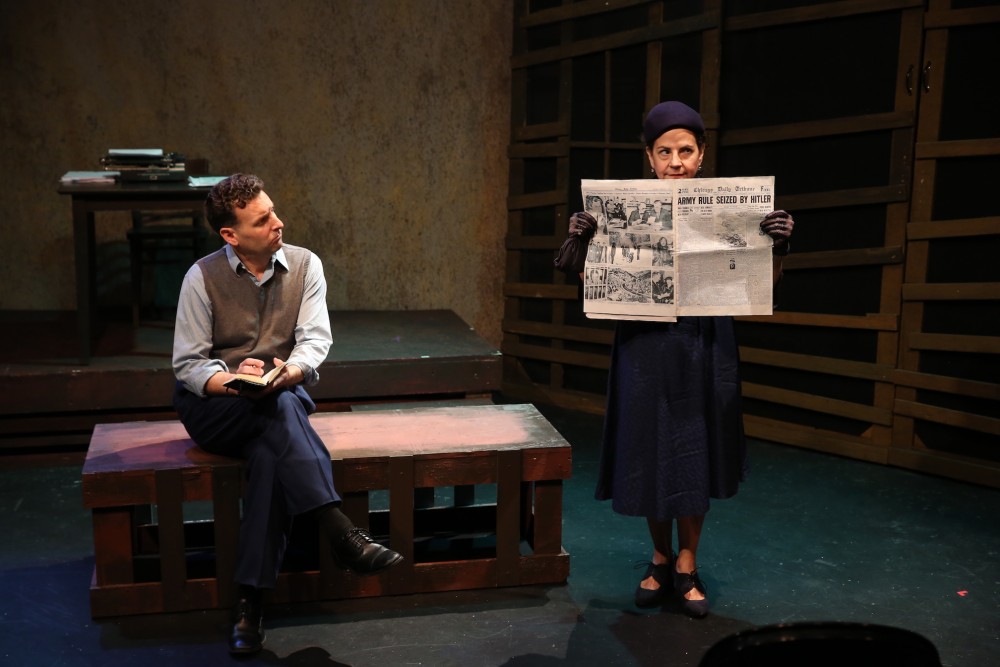
Gabriel Grilli, Andrea Gallo
by JK Clarke
Kurt Vonnegut, Jr. was a masterful novelist, known primarily for the satirical, cynical vein that ran through his crisp, entertaining novels. His stories often dealt, indirectly, with his having been a prisoner of war during the devastating Allied firebombing of Dresden at the end of World War II. The resulting PTSD infused his characters, most notably Billy Pilgrim in the classic Slaughterhouse Five, who would drift in and out of reality and, sometimes, time. In his 1962 novel, Mother Night (which takes its name from Goethe’s Faust, which should tell you a lot right there), Vonnegut explored the other side: an American collaborator with the Nazis. The novel has been recently converted to a play by Brian Katz and his production company, Custom Made Theatre and is playing at 59E59 Theatres through November 3.
Like much in Vonnegut’s oeuvre, Mother Night is not chronological. But straightened out for clarification, here is what happens: Howard Campbell (Gabriel Grilli) is an American living in 1930s Germany with his parents, who flee as global war becomes imminent. An American playwright (and somewhat indifferent member of the Nazi party) married to famous German actress Helga Noth (Trish Lindstrom, who also plays Helga’s sister Risa), who’s down with the whole Nazi thing. Because of Campbell’s connections within the Nazi party, he is approached by Wirtanen (Andrea Gallo, who has a sort of Ruth Gordon mannerism and twinkle in her eye), an American military intelligence agent, asking him to become a double agent.
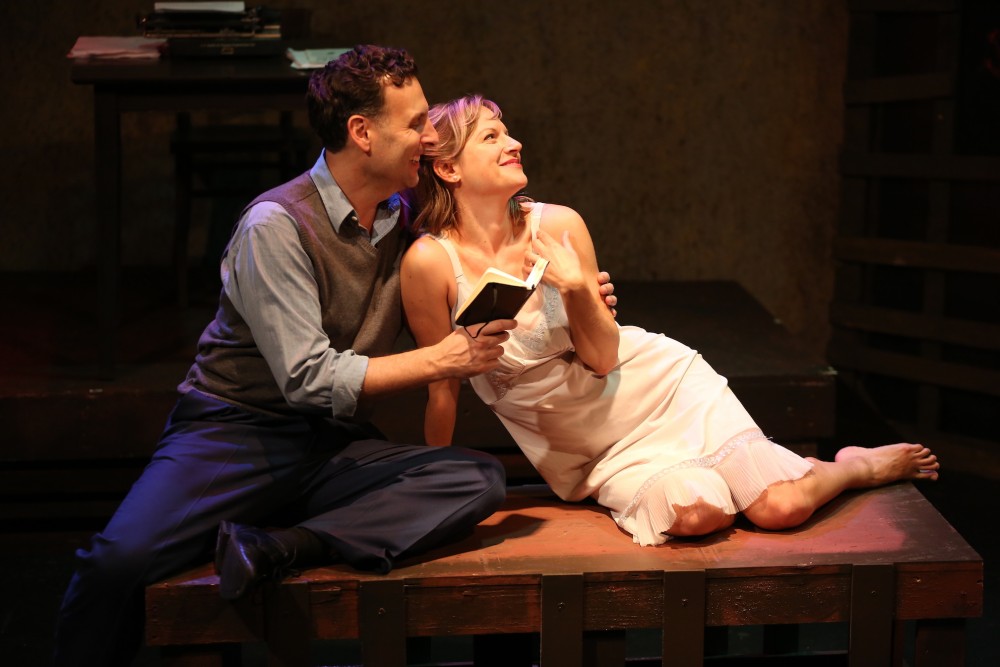

Gabriel Grilli, Trish Lindstrom
Campbell later claims he did indeed become a double agent, and it ends up getting him out of jail and returned to America. He had been a radio announcer, a voice of American dissent for the Ministry of Popular Enlightenment, disseminating virulently anti-American broadcasts on a regular basis. While seeming to be in agreement with the Nazi philosophy, and an eager co-conspirator, Campbell is apparently (though rather implausibly, as we hear in a sample of one of his rather unprofessional broadcasts) passing messages to American military agents through a series of grunts, coughs and pauses during his program. He plays the role of pawn of Nazi propaganda chief Joseph Goebbels, for whom he works as well as socializes with, along with vicious Auschwitz commandant Rudolf Höss.
Later, after the war, released from prison and living in New York, Campbell eventually makes the acquaintance of a Russian agent and erstwhile painter, George Kraft (Dave Sikula), who just happens to live upstairs. Then his “wife” returns after having been presumed killed while performing for troops on the Eastern front. Through a number of confounding plot twists, they conspire to take him to Russia. Other Americans discover that he, the voice of the American Nazi, is living in their midst and he is hounded and harrassed. Eventually he decides to go to Israel on his own to stand trial—which is actually where this play (and the novel) starts. They want him for crimes against humanity, but he feels mostly guilty for crimes against himself.
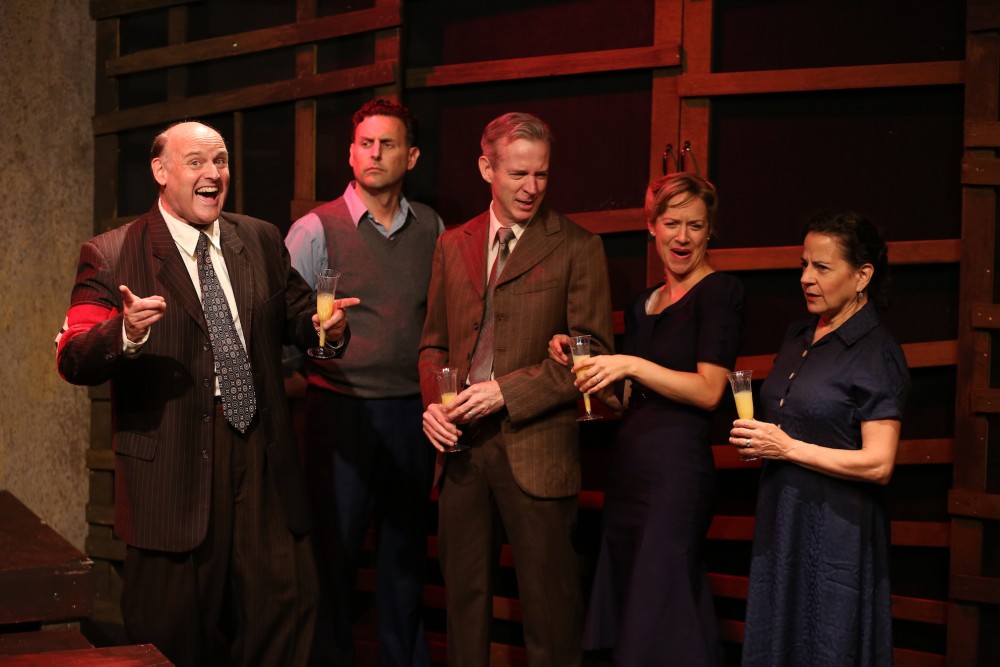

Mother Night must no doubt have had a significant impact upon publication in 1962, as the country was still reeling from the fallout of World War II and with the 1960 capture (in Argentina) and subsequent trial and execution of Adolf Eichmann (who’s in the same Israeli prison as Campbell and who consults with him about writing technique). But the story doesn’t really stand the test of time; and it loses luster in the transfer to the stage. While writer/director Katz makes a noble effort and is supported by a solid, though somewhat colorless performance by Grilli, who carries the play and its uneven cast. Daniel Bilodeau’s wood-slat set with characteristic old typewriter and lonely desk mix nicely with Zoë Allen’s period costumes (though featuring oddly sagging swastika armbands that look as if they’re made of felt).
The moral of Mother Night is plainly laid out by Vonnegut in the closing lines of the novel/play: “We are what we pretend to be, so we must be careful about what we pretend to be.” An important message even today to be sure, but somehow the delivery mechanism just doesn’t hold up, and at two hours and fifteen minutes it’s a far too long way to get there.
Mother Night. Through November 3 at (59 East 59th Street, between Park and Madison). Two hours, fifteen minutes, one intermission. www.59e59.org
Photos: Carol Rosegg


